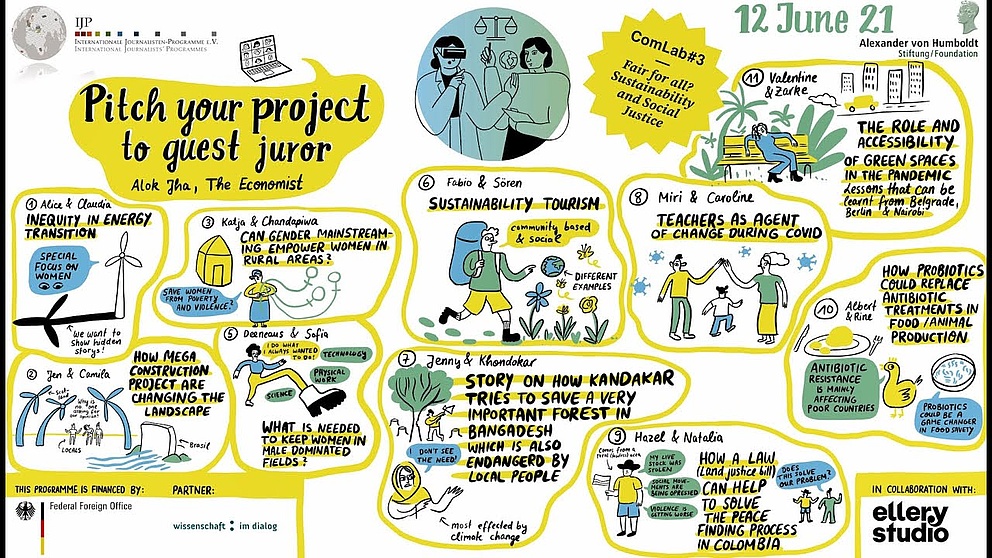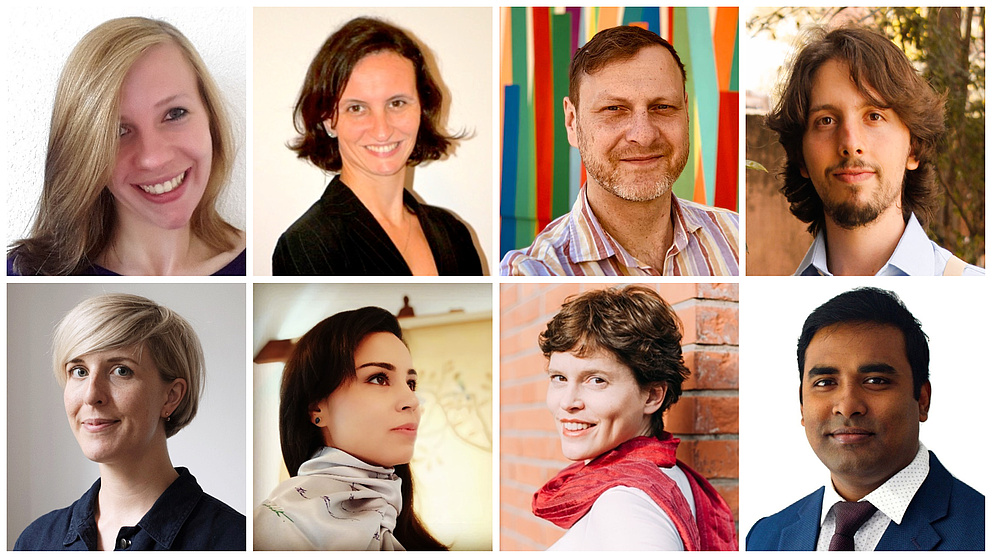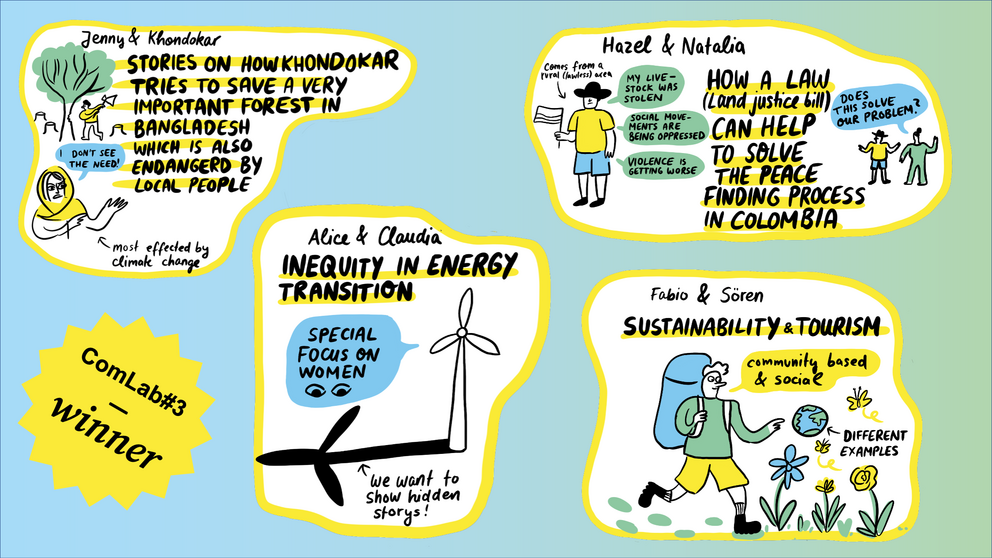Jump to the content
- {{#headlines}}
- {{title}} {{/headlines}}
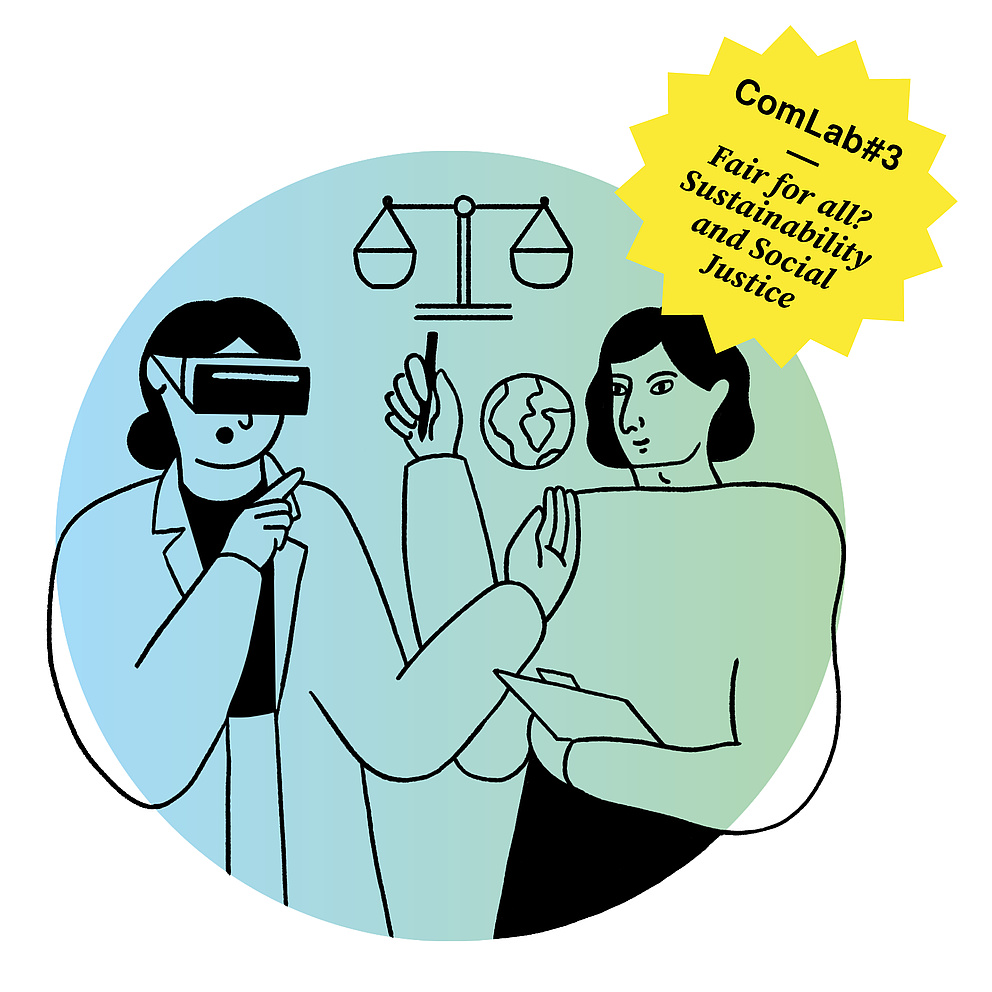

Humboldt Communication Lab
A conversation between science and the media: twice a year, ten Humboldt Fellows and ten early-career journalists get together with the aim of learning from one another.
ComLab#3
Sustainable transformation also means social transformation. In the Agenda 2030, policy-makers worldwide defined important goals: the end of poverty and hunger in the world, access to quality education for all as well as the promotion of decent work and sustainable economic growth. Yet, how are the costs and benefits of sustainable development distributed at the local, regional and global level? What role do gender, social and ethnic background play in participation in sustainable development? And how can science and journalism help to communicate the complex social dimensions of sustainable transformation?
The third ComLab addressed the field of tension between sustainability and social justice; the potential of sustainable innovations and the conflicting goals that (can) ensue from the economic and social interests of the Global North and the Global South. During a four-day workshop, the participants discussed the conditions under which a fair, sustainable transformation of the world is possible with international experts from the political, scientific, media and civil society arenas.
Speakers
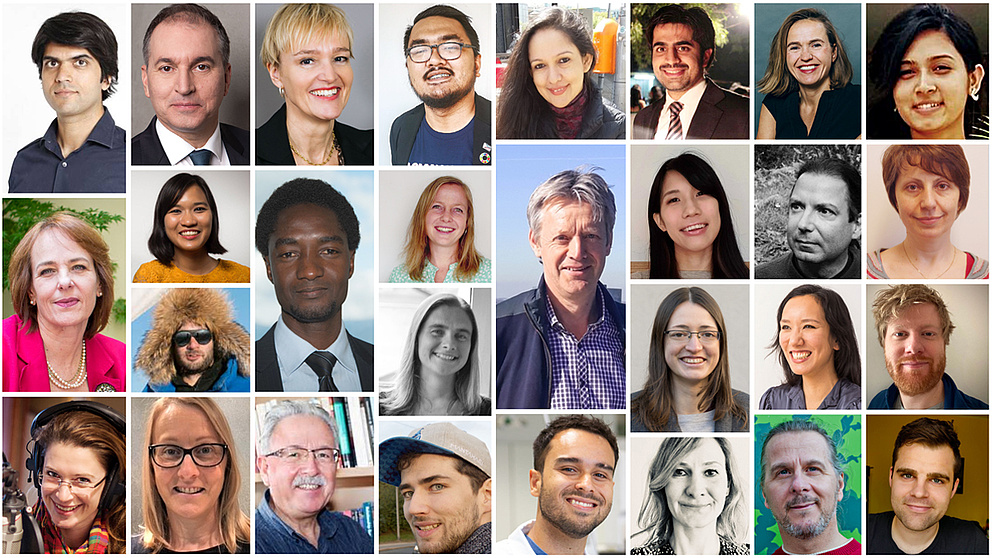
Vitus Besel (Simu Group Helsinki), Dr Damian Carrington (The Guardian), Dr Mathieu Casado (Alfred Wegener Institute), Vito Cecere (German Federal Foreign Office), Dr Moustapha Kamal Gueye, (International Labour Organization), Katarina Gulan, (freelance radio journalist), Dr Heide Hackmann (International Science Council), Prof David Hulme (University of Manchester) Dr Katja Hujo (UNRISD), John Mark Jacinto (Online SDG Youth Action Forum), Inga Janiulytė-Temporin (LRT Radijo dokumentika), Alok Jha (The Economist), Lise Josefsen Hermann (freelance journalist), Varun Kashyap (LetsEndorse), Jakub Kubecka (Simu Group Helsinki), Dr Denise Matias (Institute for Social-Ecological Research, ISOE), Dr Mette Morsing (PRME), Ivo Neefjes (Simu Group Helsinki), Anika Nicolaas Ponder (IKEM), Dr Mele Pesti (ICDS Tallinn), Dr Eduardo Queiroz Alves (Alfred Wegener Institute), Prof Boike Rehbein (Humboldt-Universität zu Berlin), Asumi Saito (Waffle), Anuradha Sharma (freelance journalist), Monika Shukla (LetsEndorse), Dr Diana Stanciu (Director of the Romanian Young Academy), Heike Vowinkel (freelance journalist), Prof Arjen Wals (Wageningen University), Dr Judith Wellen (Alexander von Humboldt Foundation), Rebecca Winkels (Wissenschaft im Dialog).
Participants
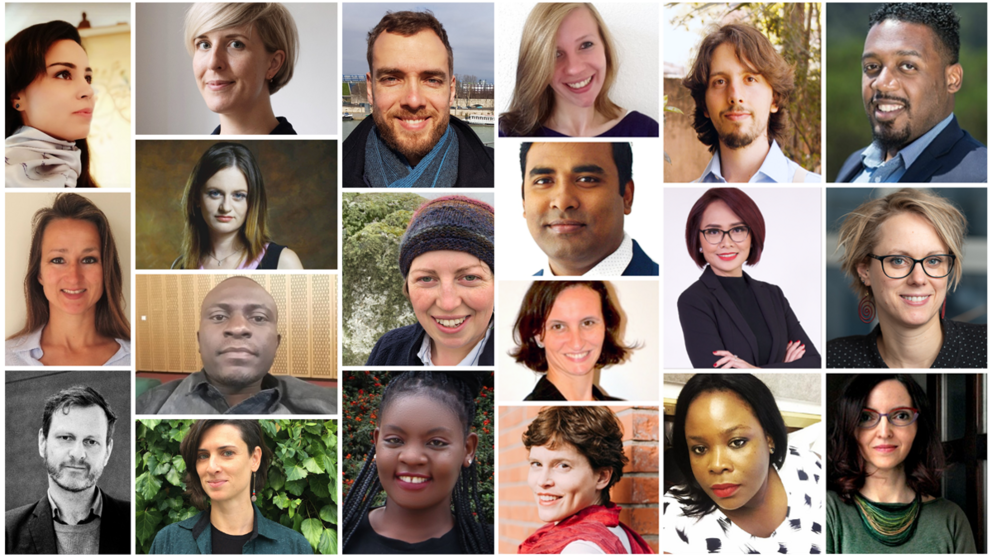
Humboldt Fellows: Alice de Moraes Amorim Vogas, Fabio Fornari, Dr. Khondokar Humayun Kabir, Chandapiwa Molefe, Camila Nobrega Rabello Alves, Valentine Opanga, Deeneaus Polk, Dr. Rine Christopher Reuben, Dr. Natalia Ruiz Morato, Dr. Miri Yemini
IJP Alumni: Albert Steinberger, Claudia Wiggenbröker, Zarka Radoja, Caroline Haidacher, Sören Kittel, Jen Stout, Katja Lihtenvalner, Hazel Sheffield, Jenny von Sperber, Sofie Syarief
The winning projects
The winning projects were selected by an external jury consisting of Johannes Boie (editor-in-chief of Welt am Sonntag), Alok Jha (science correspondent of the Economist) and Ulrike Winkelmann (editor-in-chief of taz). The works impressed the jury with their original choice of topics and media and their successful interweaving of scientific facts and storytelling. Cash prizes for the most convincing four submissions went to:
Claudia Wiggenbröker and Alice de Moraes Amorim for “Energy poverty: And then the power shuts off”

What happens when the lights go out? When you are not debating over whether to buy an energy-saving bulb, but have to use candles because you cannot pay your electricity bill? Claudia Wiggenbröker’s and Alice Amorim’s article and accompanying explanatory video highlight an often neglected and underestimated aspect of energy transition: energy poverty. While many of the current sustainability discussions focus on climate protection and reducing emissions, they tend to ignore the fact that the costs of a much-needed energy transition are not equally distributed. Wiggenbröker weighs up facts and research positions, brings in different experts on the issue and creates a complex picture of energy poverty. Text and video offer advice on how to improve the situation through socially just allocations of subsidies and funding or energy-oriented refurbishments. The research done on the issue is portrayed both in a playful and analytical way and thus caters to different target audiences. The journalistic pieces also pick up on the ways certain social groups might be more affected than others. Here Alice Amorim’s research on the female face of energy poverty is woven into the argument and will be the steppingstone for further pieces by the authors that will consider the European and global perspectives.
Hazel Sheffield and Natalia Ruiz Morato for their illustrated feature “How land reform is the secret to long-lasting peace in Colombia”
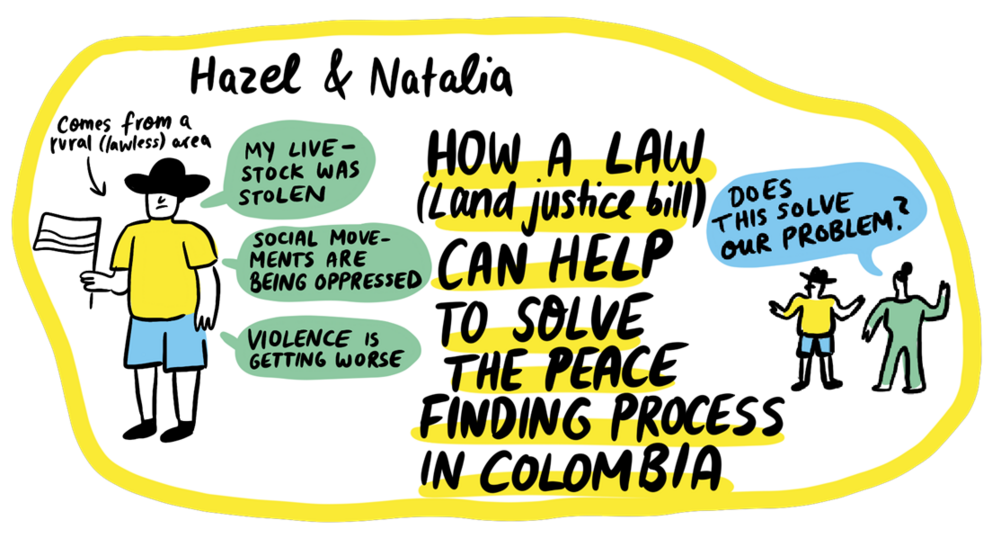
With their illustrated feature, Hazel Sheffield and Natalia Ruiz Morato shed light on the peace project in Columbia and its interconnections with land disputes and environmental protection efforts. Columbia is one of most deadly countries in the world – especially for environmental campaigners. The country, its people and its biodiversity are endangered due to armed conflict over contested land and the absence of an appropriate agrarian justice system. By using testimonials and a gripping illustration, the piece connects Natalia Ruiz Morato’s research on questions of environmental justice in Columbia with a personal lens to narrate the dire situation. It presents the perspective of people living in and with the land and their struggle to survive, thus emphasizing the existential urgency of sustainable justice. The tandem takes readers on a journey to three different regions of land disputes, Sierra de la Macarena, Sierra del Perija and Reservas Campesinas, to explore the gruesome social situation and complicated governance issues. But it also offers hope and solutions: a long promised land reform and system of agrarian justice, which could bring peace and safeguard the environment all at once.
The feature was published in the January/February 2022 edition of the New Internationalist:
“Who will protect the land?” New Internationalist, January-February 2022, Issue 535, S. 64-71.
Sören Kittel and Fabio Fornari for their six-part article series on sustainable tourism
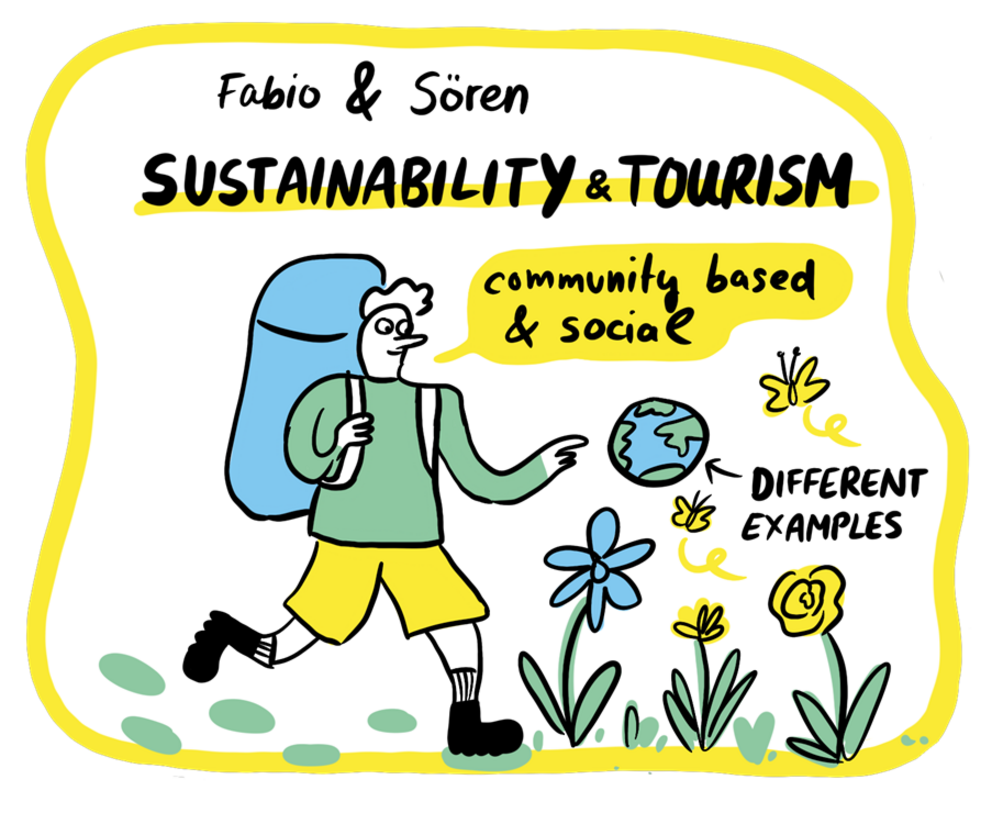
After months of social isolation, with the lockdown forcing many of us to stay at home, most of us long for a change of scenery. Especially during the pandemic, travelling has become synonymous with individual freedom. Yet, climate change – floods, heat waves, loss of biodiversity – has shown us that we need to change our behaviour and forms of mobility. And this is especially true for the tourism sector. The timely five-part article series by Sören Kittel and Fabio Fornari (German Chancellor Fellowship) highlights the local and global effects of an industry that has experienced considerable losses and cuts during the pandemic and now has to ask itself if it can continue as before or whether it has to set a new course to meet the global goals (SDGs). From Green Hotels in Berlin to the small Island of Arborek in Indonesia, where tourists help to save the coral cultures, to best practices from Finland and Brazil, the articles look into the ways sustainable tourism can be put into practice without destroying natural resources. The series is a brilliant example of how to connect a global issue with local knowledge and international research expertise, embodied by Fabio Fornari, a tourism researcher, and many other experts in the field of tourism.
- Part 1: Tourismusforscher: „Berlin hat alles, um ein nachhaltigeres Reiseziel zu werden“
- Part 2: Die Tourismusindustrie ist wie ein Öltanker, der auf Kurs gebracht werden muss
- Part 3: Vögel, frisches Obst und reichlich Grün – willkommen in Parelheiros!
- Part 4: Feinde im Paradies: Müll, Seesterne und der steigende Meeresspiegel
- Part 5: Im Land der Huskys: Wie Lappland den nachhaltigen Tourismus fördert
- Part 6: Grüne Hotels werden irgendwann wie Bio-Märkte sein: Überall Standard
Jenny von Sperber and Khondokar Kabir for the radio feature “The last forest of Bangladesh”
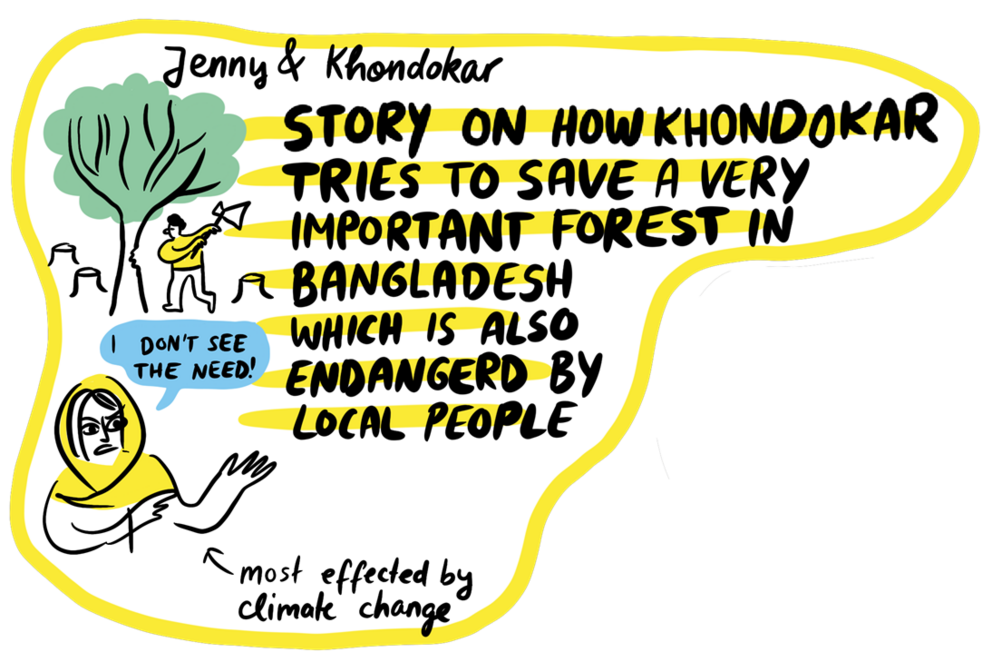
Jenny von Sperber’s radio feature “The last forest of Bangladesh” reminds us that climate protection always has a social dimension that we need to consider if we want to achieve sustainable change. By bringing in voices from the Madhupur Sal forest in Tangail, Bangladesh, the journalist and her scientist partner draw attention to the alarming effects of deforestation in one of the most vulnerable regions of the world. However, the radio feature chooses an unexpected angle and emphasises the role the inhabitants play in destroying the ecosystem. The piece revolves around the conflicts between indigenous groups and the local forestry department. But it also tells the story of attempts to integrate the forest dwellers into a participatory forest management plan, which was flanked and evaluated by researchers such as Khondokar Kabir. The compelling radio feature presents the driving motives, approach and expertise of the researcher and connects his biography to the land and people. The perspective taken presents a scientist, who was able to devise guidelines that – for the first time – brought authorities and the local population together. Yet the piece also shows what happens when these efforts lose support and funding. The feature asks the audience to listen to those who are too often silenced in our global climate change discussions.

